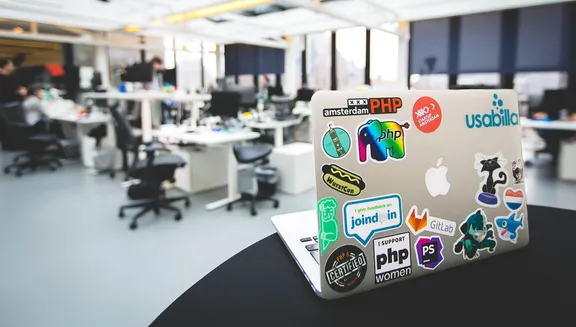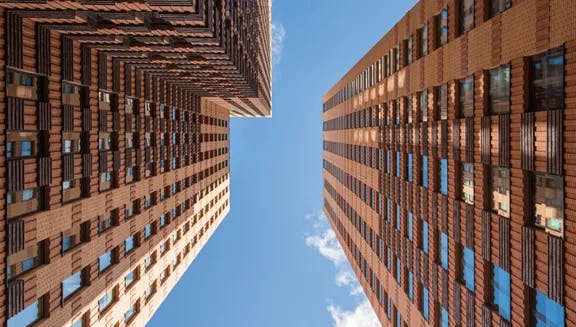
Top funding rounds and acquisitions, zebras and notable bootstrappers of 2021
2021’s biggest funding rounds
For people and businesses alike, the pandemic’s second year came with its own challenges, but it also brought inflections of relief and broadened world perspectives. And it ushered in new opportunities for doing business, plenty of which concentrated on meaningful ways to connect with others and protect valuable assets while staying healthy and well. As 2021 comes to a close, we look back on some of the year’s biggest funding rounds and noteworthy acquisitions.
Notable bootstrappers and zebras
In this record year, some startups have had quieter successes in their steady, sustainable growth. Some have found that bootstrapping has paid off, allowing them to break even or make a profit. Others applied their resourcefulness and ingenuity to make smart pivots during the pandemic. A number of impact-oriented companies and not-for-profits, the zebras of the startup menagerie, could even expand or enjoy new market relevance – which is why we’re celebrating them in this 2021 wrap-up as well.
Companies that raised three-digit million rounds
Amsterdam-headquartered omnichannel communications platform MessageBird received €800 million in series C funding. Another €800 million in series C funding went to another Adriaan Mol-owned unicorn, namely to Dutch payment processor Mollie. And tech-focused challenger bank bunq raised €193 million in series A funding.
€600 million in series D funding went to Dutch online supermarket and delivery service Picnic. As for a restaurant-centric food delivery service, Dutch-gone-global company Just Eat Takeaway raised €549 in post-IPO equity.
Companies that raised two-digit million rounds
$85 million in series B funding went to Amsterdam-founded e-scooter mobility pioneer Dott. Another green energy-focused startup, Zola Electric, which provides solar home solutions, raised $45 million in late venture capital.
Another ride-sharing e-scooter startup, Felyx, which raised €24 million in Series A funding. Offering a new take on quick, affordable and sustainable mobility, the company plans to use the money to expand across Europe, notably in Germany and France.
$50 million in series B funding went to EdTech study notes-sharing startup StuDocu.
Biotechnology company Lumicks, which makes instruments that enable the analysis of single molecules and cells behaviour, raised $93 million in series D funding. Lumicks is one of Amsterdam’s big life sciences success stories – it was founded in 2014 as a spin-off from the molecular and cellular biophysics labs at the Vrije Universiteit (VU) and has since raised more than €85 million.
Series B funding also went to clinical trial software provider Castor, which raised $45 million. The MedTech company, with offices in New York and Amsterdam, intends to use the money to help make clinical trial processes more modern and efficient.
NorthSea Therapeutics raised over €70 million. And Lepaya raised €35 million.
Another €30 million, this time in series B funding, went to Dutch online supermarket Crisp. The agrifood startup is known for its seasonal and transparently sourced products, direct purchasing and sound relationships with food producers.
Digital business platform BridgeFund, which offers swift, responsible business credit to SMEs, raised €20 million in early venture capital.
Notable acquisitions
For €500 million, Amsterdam startup Office App was acquired by HqO, a Boston-based company also deploying a digital platform to handle commercial tenant experience.
French multinational healthcare company Sanofi acquired Dutch biotech company Kiadis Pharma for €308 million.
Amsterdam-based DevOps release management solution startup Vamp.io was acquired by US-based CircleCI for an undisclosed amount.
Also for an undisclosed amount, MessageBird acquired video customer engagement platform 24sessions, a fellow Amsterdam-headquartered tech company.
Fellow Amsterdam-based startup Hubs, an on-demand manufacturing and rapid prototyping service, was acquired by Protolabs for $280 million.
Impraise, an app facilitating real-time feedback at work, was acquired by San Francisco-headquartered digital coaching startup BetterUP for an undisclosed amount.
Amsterdam-based recruitment management and applicant tracking system Recruitee was bought out by Boston growth equity firm PSG for an undisclosed amount.
Also for an undisclosed amount, smart EV charging software company GreenFlux was acquired by Germany-based DKV Mobility Services Group.
Another EV-focused startup, ViriCity, an e-bus and commercial vehicle management provider, was acquired by North American and European markets-serving ChargePoint for €75 million.
In green news of another sort, the UK’s Bloom & Wild has acquired Dutch fresh flower subscription startup Bloomon for an undisclosed amount.
Notable bootstrappers and zebras
Although all these rounds are of course impressive, and we compliment the teams on their hard work to achieve these numbers, we couldn’t overlook the many companies that did not make the headlines for raising attention-grabbing rounds yet made remarkable achievements in different ways.
In our recent #FoundersFridays stories Kirsty Sharman, founder of Referral Factory, shared her thoughts with us on bootstrapping and how to do it successfully.
“I have pretty strong views on this subject. My sense is that the media and other key players in the field tend to over-glorify capital raises, and so, many entrepreneurs tend to think that either they can’t start without capital or that if their startups aren’t gaining traction it’s because they don’t have enough capital.
It’s not at all that I think raising capital is bad, of course, it can be an incredible tool to drive growth – rather, I think we need to stop making out as if raising capital is the only option and, rather, educate entrepreneurs about the pros and cons, about what capital can do for you and when and where you should look to access it. (...) For me, it’s really about education so that younger entrepreneurs can make informed decisions and not just chase capital because they see it as the only route to startup success. I believe that, if possible, entrepreneurs should try bootstrap for as long as they can, and once they have product-market fit, seek capital to accelerate growth.”
Her interview inspired us to turn to the hivemind and find more of Amsterdam’s so-called “zebras” – companies showing steady progress and sustainable growth. So, here are some of the companies that we discovered needed to be celebrated in this overview as well.
SaaS
Fashion Potluck calls itself the first social media platform for women, proudly reporting that it avoids biased algorithms while promoting female empowerment and freedom of expression. In late 2021, the company reported over 65,000 monthly active users, with future aims to foster a community, create content and provide access to events and a monetisation programme. The first time we met Fashion Potluck was back in 2015 and given just how difficult it is to start a completely new social media platform, we applaud the team’s grit.
SwipeGuide empowers manufacturers to maximise operational efficiency on the factory floor. Straddling a status between unicorn and zebra, the SaaS firm prevailed through a difficult period – having lost almost half its employees in 2020 due to budget cuts – and raised €5 million this past April to expand into other markets and open a US office. In our #FoundersFridays story with the co-founder Willemijn Schneyder-Valbracht, she says that “we’ve had to make some difficult choices under pressure. Our company culture certainly took a hit from these decisions, and we’ve had to pay a high price: we had to let go of some brilliant people and this had a substantial impact on our overall team spirit. But failure was never an option, and neither was abandoning our commitment to a vibrant and inclusive culture. We’ve now doubled down on expanding our talent, and we’ve brought on some great resources to help us build SwipeGuide stronger than ever. Our recent funding round is, of course, a key component to this sustainable growth.”
Sustainability-focused startups
SMARTKAS is an award-winning AgriTech that designs, builds and runs smart farms in an effort to feed the world and promote food security. Similarly to Referral Factory, this startup also has strong views on the bootstrapping vs VC discussion. 90% of SMARTKAS’s funds are raised through bonds – they are big proponents of debt financing instead of selling equity. Being only one-and-a-half years old, SMARTKAS caters to supermarkets in Germany, is getting requests for projects all around Europe and will start building a massive smartplant factory in January. What they really want to do is build a community, powered by community bonds – proceeds from which will go to a foodbank. One of their main goals for 2022 is strengthening their marketing and storytelling.
Ozarka is a full-service reusables-as-a-service company that serves both B2B and B2C markets. For the former, it works with caterers, events, corporate canteens, delis and restaurants, replacing disposable made-to-order food packaging with reusables. In its dealing directly with customers, Ozarka works with Deliverzero.nl, through which all food delivery orders are fulfilled in free reusable containers.
The Great Bubble Barrier made international headlines this past year with its bubble-curtain method for eliminating plastics from waterways without prohibiting the passage of ships or fish. The startup is available to advise governments on waste management and water pollution, and plans to launch a barrier in Portugal’s Porto region in summer 2022. The first canal Bubble Barrier in our city was placed in November 2019, commissioned by the Regional Water Authority Amstel, Gooi and Vecht and the City of Amsterdam.
Cybersecurity and post-growth entrepreneurship
Radically Open Security is a non-profit that unites security researchers, networking experts and forensic specialists in providing services that help make organisations more secure. A bootstrapper par excellence, the business donates 90% of proceedings to NLnet, the Dutch foundation that promotes an open-information society. It also has its own incubator, Nonprofit Ventures, whose Post Growth Incubator Programme offers an eight-week training course catering to entrepreneurs who want to apply the post-growth model to their business endeavours.
A number of alumni from the Nonprofit Ventures incubator are also worth mentioning.
Art Partner helps leaders harness the power of creativity. By pairing companies with artists, the organisation encourages all kinds of workers to apply an artistic mindset to solving societal challenges.
Nuagua promotes sustainable and regenerative food production through its state-of-the-art water treatment technology. The company provides and finances engineering solutions so aquaculture farmers can increase their production and lower costs. Their solution is financed and operated by Nuagua.
Terragon Nature Lab is an open laboratory, a knowledge hub and an incubator for regenerative living and sustainability projects and activities. It spans 2.5 acres of nature reserve in Amsterdam Nieuw-West. From kids’ nature camps to mentorship programmes for students and researchers, they provide a space where visitors can explore, through playing, learning and experimenting, how you can live in a more sustainable and regenerative way. By having a strong local and international network, they have been able to fund most of their projects by the European Commission, Stichting Doen, Gamefonds, universities and private sponsors.
Congratulations to all mega-round holders, as well as all companies that pushed through hard times, persevered, successfully pivoted and broke even. The drive and love that all these entrepreneurs have for their craft inspires us every day.
Related articles

Halfway through 2021: Amsterdam’s startup investment landscape

Amsterdam companies are providing startups with valuable resources in 2021

Amsterdam startup funding news, April 2022

Amsterdam startup funding news, July 2022

Amsterdam’s startup ecosystem valued highest in EU in H1 2022

Amsterdam startup funding news, January 2022

TOMAS CONNECT #1: Diversity in your tech team!

Amsterdam startup funding news, March 2022

Campus Amsterdam
